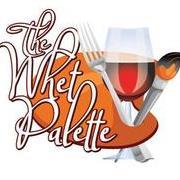-
Welcome to the eG Forums, a service of the eGullet Society for Culinary Arts & Letters. The Society is a 501(c)3 not-for-profit organization dedicated to the advancement of the culinary arts. These advertising-free forums are provided free of charge through donations from Society members. Anyone may read the forums, but to post you must create a free account.
The basics of dining in France
-
Similar Content
-
- 79 replies
- 7,879 views
-
Basic Toasters 1 2 3 4 5
By gulfporter,
- 110 replies
- 17,927 views
-
- 1,595 replies
- 137,977 views
-
- 1 reply
- 879 views
-
- 196 replies
- 50,717 views
-
-
Recently Browsing 0 members
- No registered users viewing this page.






Recommended Posts